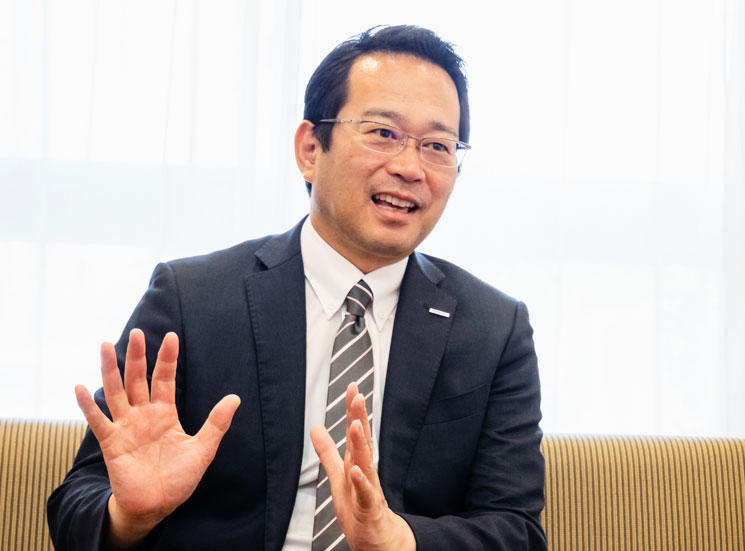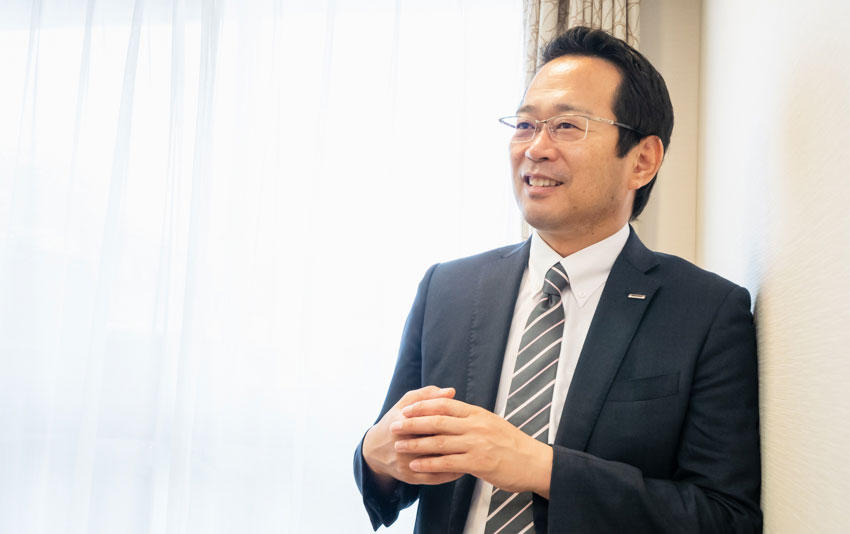2018.7.12
Kwansei Gakuin University and Benesse: The state of HR development for senior business #1
Creating leaders for senior business development: thoughts on lectures by professionals at the frontline
Kwansei Gakuin University’s School of Human Welfare Studies and Benesse Style Care began a course in April 2018 supported by donations from Benesse Style Care titled “Issues and Prospects for the Senior Nursing Care Business in Japan,” with the aim of developing personnel that can provide new service value and propose new operations for the senior business. Here we present a report on initiatives at the nursing care frontline.

By the time current university students reach old age in 2065, it is estimated that around 40% of Japan’s population will be elderly (2017 White Paper on the Aging Society). The environment around senior citizens is already beset with a number of issues, including social security finances and a shortage of nursing care workers. It is evident that the younger generations need to understand the current environment for seniors, think about what kind of society they want to have, and develop the capabilities to turn this into reality.
Kwansei Gakuin University’s School of Human Welfare Studies and Benesse Style Care run a course supported by donations from Benesse Style Care that focuses on this environment, titled “Issues and Prospects for the Senior Nursing Care Business in Japan,” with the aim of developing personnel that can provide new service value and propose new operations for the senior business. Over three reports, we would like to highlight the vision behind this course to tackle societal issues and the perceptions of senior care held by the students who elected to take this course.
Using know-how accumulated from 20 years on the frontline, senior business professionals elicit unique ideas from students.
To investigate why a company on the frontline of the senior business set up a university course, we asked Satoshi Adachi, the Benesse Style Care staff member who guided the project, about the features of the curriculum and how the course came to be established.
―― The curriculum is split into 14 lectures, so could you give us an overall outline and which parts you put particular effort into.
Mr. Adachi: “Kwansei Gakuin University’s “Issues and Prospects for the Senior Nursing Care Business in Japan,” a course supported by donations from Benesse Style Care, is aimed at 3rd and 4th year students in the School of Human Welfare Studies. All of the lectures are given by managers and staff with specialist knowledge from Benesse Style Care.
Topics covered include issues in Japan’s senior business, the income and expenditure of nursing care providers, care insurance, on-site services, conditions for senior citizen living, senior marketing strategies, and the qualities of leaders. The lectures are not confined to listening in a classroom, but also involve going out to fee-based nursing care homes operated by Benesse Style Care to see inside facilities. In addition, we hold workshops in which students can discuss the features of the home based on what they saw and how things might be done better, and in the final lecture students will make a presentation with proposals on “the senior business in 10 years’ time”.”
―― So the students learn about the frontline of the senior business from a broad perspective and directly from the company employees that work in that space?
Mr. Adachi: “Yes, but that is not all. The main feature of the curriculum is that it is based on the practical know-how that Benesse has accumulated from 20 years of operating nursing care homes. For example, the workshop after the visit to a care home utilizes materials known as “A Pattern Language Shaping a Desirable Environment for the Elderly”, one of the in-house developed “Benesse methods.” This is a set of 65 cards each of which features a different tip for creating a comfortable environment at a senior nursing home, tips gleaned from analyzing successful examples of places where residents gather, popular spaces, and the conditions in 603 rooms at the more than 300 homes managed by Benesse.”

―― Why did you want university students to work with your company to think about the senior business in Japan?
Mr. Adachi: “With Japan set to become a country in which 40% of the population is made up of senior citizens, our main aim was to get the young people who will live through these conditions to grasp the reality of an aging society and think about what the senior business must look like. On top of that, the course focuses on developing human resources with leadership abilities to think about Japan as an aging society and create a new senior business.”
―― Is this the first time you have made such a course?
Mr. Adachi: “This is the first time we have included so much detail, but we have held lectures before at various universities on issues at the nursing care frontline and possible solutions using problem-based learning (PBL) methods.”
“Talking with students on the topic of “new senior business” throws up ideas we had not thought of. Unique ideas proposed by young people include a “care house” based on the concept of recently popular shared houses, and there have also been examples of manufacturers showing interest in senior citizen-focused lifestyle products dreamt up by students and taking them through to the brink of the commercialization stage. There are a number of students who have discovered the broad range of business possibilities in the nursing care sector through the course and ended up becoming Benesse Style Care employees, and some of them are even active in management positions.”
Thinking about “living well” through the “ultimate service industry”
―― It seems there is a generally negative image on the issue of the aging society, including about nursing care. What does the nursing care business mean to you?
Mr. Adachi: “Many of the residents at the fee-based nursing care homes that we operate are alone and insecure having lost their partners or having some disease, and they face a range of problems. Moreover, lots of the families of residents decide to place them in a home knowing that they should really care for their relatives themselves. I think the only way to provide a service is to be conscious of the various thoughts swirling through each individual’s mind and of their differing life circumstances. As a consequence, for me nursing care is the “ultimate service industry.” The guiding principle of Benesse Style Care is to deliver services that show “focus on one’s way of being.” We tell students that this principle is nonnegotiable.”

“I worked in a marketing role in the educational field, including conducting trial exams, until I was 28. At that time, the care insurance system had just come into being, and private-sector firms were beginning to move into the nursing care and welfare business. I myself viewed the senior business as a “new business chance.” However, once I actually started working in nursing care facilities I realized that the smiles of the residents and their families and the growth of the young staff that are the bedrock of the homes made me happier than any business figures. Being involved in the senior business has caused me to think more deeply about what happiness is in life and the true nature of connections between people. That to me is the attractiveness of the senior business.
―― What kind of future cooperation for the senior business would you like to have with universities and students?
Mr. Adachi: “As a company facing up to the major issue of the aging society, we would like to take on more new challenges with a variety of universities. For example, I think it would be good to set up a group home on campus which students and alumni could manage. We would need to talk with students to consider what kind of facility would be best. As a company, we want to carefully nurture ideas that originate from the students’ unique viewpoint.”
Satoshi Adachi
Corporate Officer and Head of the West Japan and Tokai Area Business Division at Benesse Style Care
Kwansei Gakuin University and Benesse: The state of HR development for senior business
#2 “To know welfare is to know contemporary Japan”: student viewpoints and issue awareness
#3 Developing the ability to shape society. The Department head’s hopes for students.
Related websites (Japanese version only)
- Benesse Style Care
https://www.benesse-style-care.co.jp/
